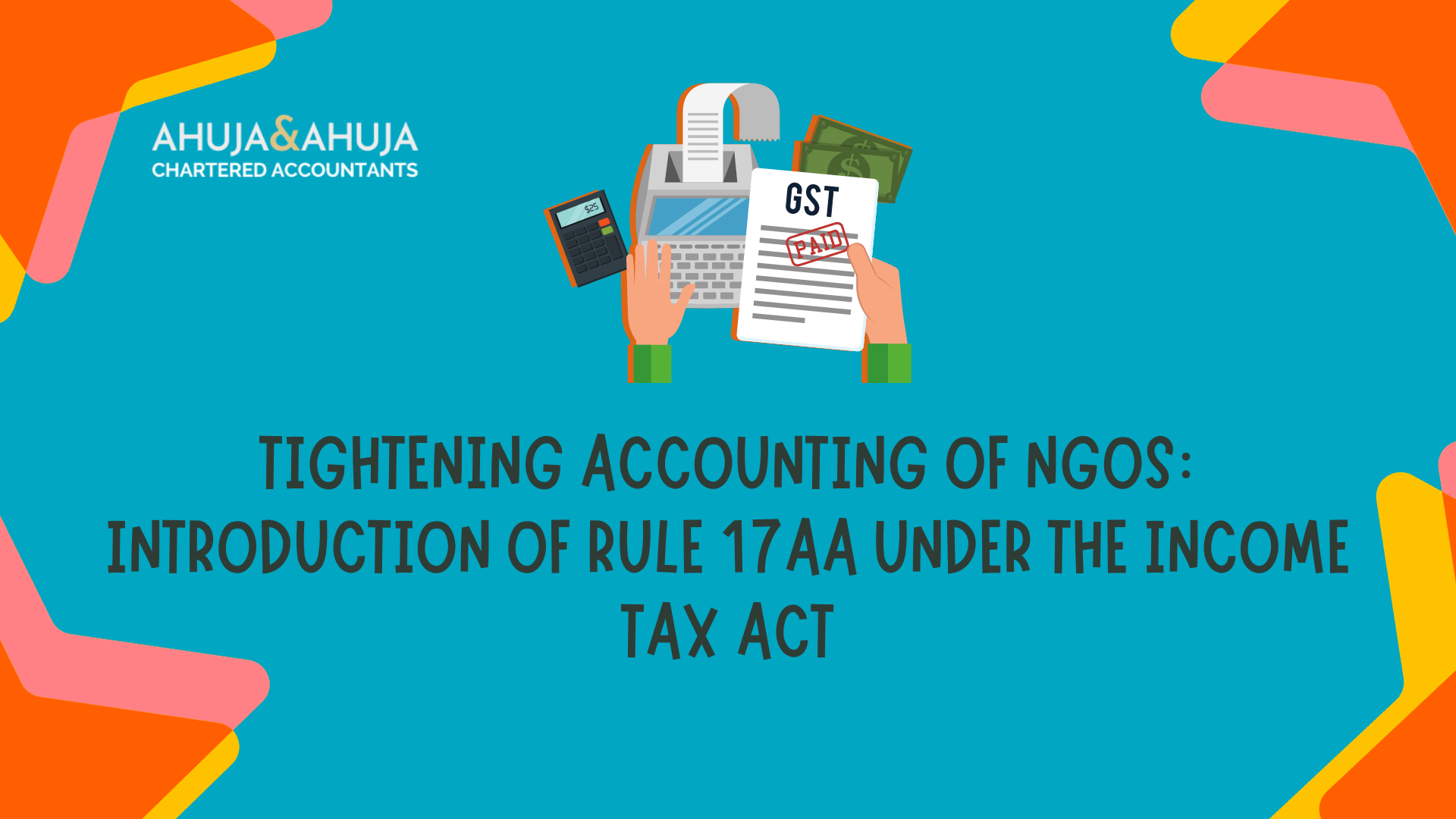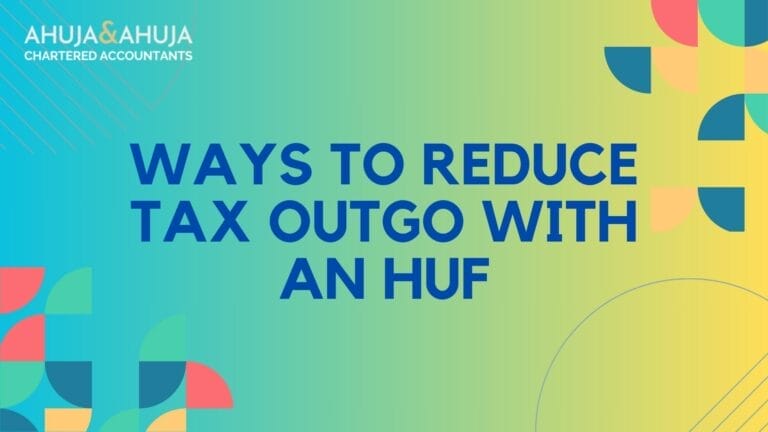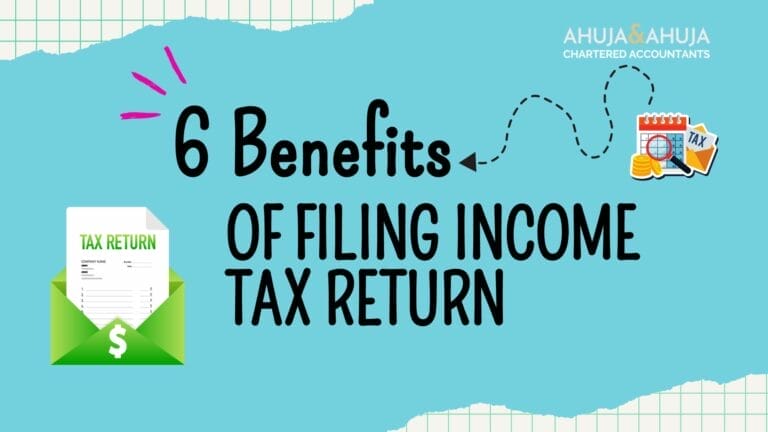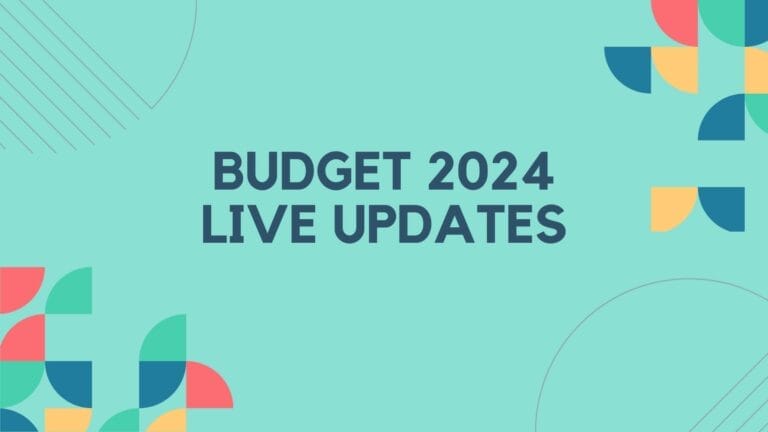Tightening Accounting of NGOs: Introduction of Rule 17AA on Maintenance of Books of Accounts under Income Tax Act
Every individual and organization operating within the boundaries of a nation is governed by the country’s taxation policies. Within these policies, a set of ground rules establishes the clarity required for efficient financial management. The Income Tax Act, for instance, prescribes robust bookkeeping and auditing norms for taxpayers. However, the treatment of Non-Governmental Organisations (NGOs) has largely remained undefined.
Strangely enough, these charitable entities, dedicated to a variety of social causes, haven’t been held to specific provisions regarding the maintenance of books of accounts — until now. The Finance Act 2022 brings with it significant implications for such organizations, modifying the landscape of financial prudence in the NGO realm. The introduction of Rule 17AA under the Income Tax Act is a gamechanger.
Our Comprehensive NGO financial services
This new piece of legislation adroitly bridges the gap between ordinary taxpayers and charitable organizations. Starting from the Fiscal Year (FY) 2022-2023, any charitable institution whose total income exceeds the maximum amount not chargeable to tax is mandated to maintain specific books of accounts and other vital documents.
While this may seem like a sudden upheaval for many NGOs, it is, in fact, a beneficial move towards tighter financial control and increased transparency for these institutions. It aligns the functioning of NGOs with internationally accepted financial practices, preparing them to take on the challenges of the future — challenges that are invariably tied to transparent operations and accurate financial reporting.
For 80G-12A Registration related services, click here
To understand the nitty-gritty of Rule 17AA, it is important to delve into the specifics of the rule, explore how it impacts the functioning of NGOs, and most importantly, learn how organizations can adapt to these new regulations.
The Requirements of Rule 17AA
Under the newly introduced Rule 17AA, charitable institutions are now obligated to maintain specific books of accounts and other essential documents. Let’s take a closer look at these requirements:
1. Books of Account
Charitable institutions must keep well-maintained books of account, which include:
- Cash book
- Ledger
- Journal
- Copies of bills
- Original bills
- Any other relevant books necessary for accurate accounting.
2. Business Undertaking and Business Carried On by the Assessee
If the charitable institution is engaged in any business undertaking, it should maintain separate books of account for such activities. This ensures a clear distinction between the charitable operations and any commercial ventures undertaken.
3. Other Documents for Record-Keeping
Charitable institutions must also maintain meticulous records of various aspects, including:
- All projects and institutions run by the organization, containing details such as their names, addresses, and objectives.
- Income from voluntary contributions, specifying the details of the donors.
- Income derived from any property held under trust, along with a comprehensive list of such properties.
- Other sources of income for the institution or trust.
- Application of income, both within and outside India.
- Deemed application of income.
- Accumulated income or money set apart.
- Investments made in specified modes.
- Voluntary contributions received and their subsequent utilization.
- Details of loans and borrowings.
- Information on any properties held by the trust.
Mode in Which Documents May be Kept
According to the rule, the books of account and other relevant documents can be maintained in any of the following forms:
- Written form
- Electronic form
- Digital form
- Printouts of data stored digitally
Place of Maintenance
Charitable institutions are required to keep and maintain the books of account and other documents at their registered office. However, if the management deems it necessary, they can pass a resolution to keep these records in another place.
Period of Maintenance
As per Rule 17AA, charitable institutions must preserve their books of account and other relevant documents for a period of 10 years from the end of the relevant assessment year.
It’s important for NGOs to understand and comply with these requirements to ensure smooth financial operations and adhere to the new regulations.
The Specificity of Rule 17AA
Rule 17AA under the Income Tax Act brings with it clarity and specificity for the maintenance of books of accounts by charitable institutions. To better understand the rule’s implications, let’s delve into some important aspects:
1. Specified Person
The term “specified person” plays a crucial role in determining the applicability of Rule 17AA. A specified person refers to any charitable institution whose total income exceeds the maximum amount not chargeable to tax. Therefore, if an NGO’s total income exceeds this threshold, it becomes subject to the requirements stated in Rule 17AA.
2. Mode of Document Storage
Rule 17AA allows charitable institutions the flexibility to maintain their books of account and other documents in various forms:
- Written form: Using physical ledger books, journals, etc.
- Electronic form: Storing digital records on computers or other electronic devices.
- Digital form: Utilizing specific accounting software or digital platforms to maintain records.
- Printouts of data stored digitally: Generating physical copies of documents stored electronically.
It is important for organizations to choose a mode of storage that suits their specific needs, ensuring the integrity and accessibility of their financial records.
3. Place of Maintenance
While the rule stipulates that the books of account and other documents should be kept at the registered office of the charitable institution, organizations have the option to maintain these records at an alternate location if the management passes a resolution to do so.
4. Period of Maintenance
To ensure compliance, NGOs must maintain their books of account and other documents for a period of 10 years from the end of the relevant assessment year. This extended timeframe allows for the preservation of financial records and facilitates any necessary audits or inquiries.
It is crucial for charitable institutions to grasp these specific requirements and integrate them into their financial management processes, ensuring compliance with Rule 17AA.
Adaptation to Rule 17AA
The introduction of Rule 17AA imposes new responsibilities on charitable institutions. To ensure smooth compliance with the rule, NGOs should consider the following steps:
1. Review Existing Accounting System
NGOs should conduct a thorough review of their current accounting systems and procedures. Assess whether the existing system is capable of capturing the necessary information required by Rule 17AA. Identify any gaps or areas that need modification.
2. Modify Accounting Software
To effectively maintain the books of account and other documents in compliance with Rule 17AA, NGOs should consider modifying their accounting software. This will enable them to record and track the specific details required, such as project information, voluntary contributions, income from property, and more.
Learn more about our accounting software modification services here
1. Train Staff
NGOs should provide training to their accounting and finance staff on the new requirements of Rule 17AA. Ensure that they understand the specific bookkeeping procedures and document maintenance guidelines. Training will help staff members adapt to the changes and carry out their responsibilities effectively.
2. Engage Professional Assistance
Seeking help from professional accounting and tax consultants can be beneficial in navigating the complexities of Rule 17AA. These experts can provide guidance on compliance, recommend suitable modifications to accounting systems, and ensure that NGOs are following the regulation accurately.
Adapting to Rule 17AA may require initial effort, but it plays a crucial role in enhancing the financial control and transparency of charitable institutions. By adhering to these new regulations, NGOs can strengthen their financial processes and foster trust with stakeholders.
Make sure to modify your accounting software and implement the necessary changes to comply with Rule 17AA. Doing so will allow your charitable organization to operate seamlessly within the updated legal framework.
Disclaimer
The materials provided herein are solely for educational and informational purposes. No attorney/professional-client relationship is created when you access or use the site or the materials. The information presented on this site does not constitute legal or professional advice and should not be relied upon for such purposes or used as a substitute for professional or legal advice.





